Fart is a word in the English language most commonly used in reference to flatulence that can be used as a noun or a verb. The immediate roots are in the Middle English words ferten, feortan and farten, kin of the Old High German word ferzan. Cognates are found in Old Norse, Slavic and also Greek and Sanskrit. The word fart has been incorporated into the colloquial and technical speech of a number of occupations, including computing. It is often considered unsuitable in formal situations as it may be considered vulgar or offensive.
Flatulence, in humans, is the expulsion of gas from the intestines via the anus, commonly referred to as farting, tooting, or passing gas. "Flatus" is the medical word for gas generated in the stomach or bowels. A proportion of intestinal gas may be swallowed environmental air, and hence flatus is not entirely generated in the stomach or bowels. The scientific study of this area of medicine is termed flatology.

The Byrds were an American rock band formed in Los Angeles, California, in 1964. The band underwent multiple lineup changes throughout its existence, with frontman Roger McGuinn remaining the sole consistent member. Although their time as one of the most popular groups in the world only lasted for a short period in the mid-1960s, the Byrds are today considered by critics to be among the most influential rock acts of their era. Their signature blend of clear harmony singing and McGuinn's jangly 12-string Rickenbacker guitar was "absorbed into the vocabulary of rock" and has continued to be influential.
Folk rock is a genre of rock music with heavy influences from English folk and American folk music. Combining the elements of folk and rock music, it arose in the United States, Canada, and the United Kingdom in the mid-1960s. In the U.S., folk rock emerged from the folk music revival. Performers such as Bob Dylan and the Byrds—several of whose members had earlier played in folk ensembles—attempted to blend the sounds of rock with their pre-existing folk repertoire, adopting the use of electric instrumentation and drums in a way previously discouraged in the U.S. folk community. The term "folk rock" was initially used in the U.S. music press in June 1965 to describe the Byrds' music.

Fart lighting also known as pyroflatulence, or flatus ignition is the practice of igniting the gases produced by flatulence. The resulting flame is often of a blue hue hence the act being known colloquially as a "blue angel", "blue dart" or in Australia, a "blue flame". The fact that flatus is flammable and the actual combustion of it through this practice gives rise to much humorous derivation. Other colors of flame such as orange and yellow are possible depending on the mixture of gases formed in the colon.

"Shake, Rattle and Roll" is a song written in 1954 by Jesse Stone and first recorded that year by Big Joe Turner, whose version ranked No. 127 on the Rolling Stone magazine list of The 500 Greatest Songs of All Time.
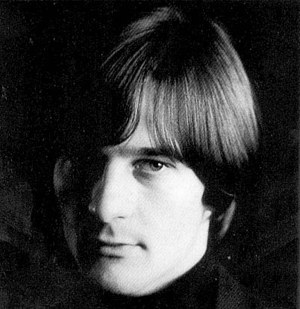
Harold Eugene Clark was an American singer-songwriter and founding member of the folk rock band the Byrds. He was the Byrds' principal songwriter between 1964 and early 1966, writing most of the band's best-known originals from this period, including "I'll Feel a Whole Lot Better", "She Don't Care About Time", "Eight Miles High" and "Set You Free This Time". Although he did not achieve commercial success as a solo artist, Clark was in the vanguard of popular music during much of his career, prefiguring developments in such disparate subgenres as psychedelic rock, baroque pop, newgrass, country rock, and alternative country. He was inducted into the Rock and Roll Hall of Fame in 1991 as a member of the Byrds.
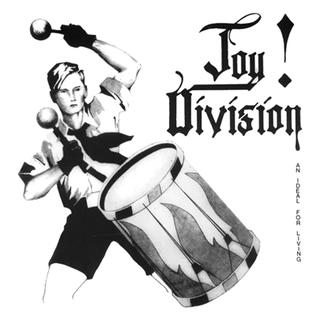
An Ideal for Living is the first EP by the English post-punk band Joy Division. It was released in May 1978 by the band's own label, Enigma, shortly after the group changed their name from Warsaw.
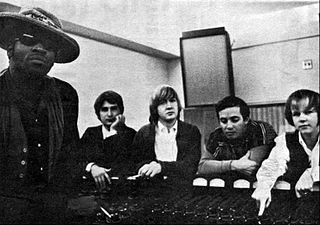
Rising Sons was an American, Los Angeles, California-based blues rock and folk music band, which was founded in 1965. Their initial career was short-lived, but the group found retrospective fame for launching the careers of singer Taj Mahal and guitarist Ry Cooder.
Paul Oldfield, better known by his stage name Mr Methane, is a British flatulist or "professional farter" who started performing in 1991. He briefly retired in 2006 but restarted in mid-2007. He claims to be the only performing farter in the world. He worked on the railways before focusing on his flatulence performances.
"Beans, Beans, The Musical Fruit" is a playground saying and children's song about the capacity for beans to contribute to flatulence.

The Sound of Fury was the first album released by Billy Fury in 1960. The album has been described as "the best rock & roll album to come out of England's original beat boom of the late 1950s". Fury was possibly the first British rock 'n roll artist to write his own songs, sometimes under the pseudonym Wilbur Wilberforce.
"Teardrops from My Eyes", written by Rudy Toombs, was the first upbeat major hit for Ruth Brown, establishing her as an important figure in rhythm and blues. Recorded for Atlantic Records in New York City in September 1950, and released in October, it was Billboard's number-one R&B hit for 11 non-consecutive weeks. It was Atlantic's first release on the new 45-rpm record format. The huge hit earned Brown the nickname "Miss Rhythm" and within a few months she became the acknowledged queen of R&B. "Teardrops from My Eyes" was her first of five number-one R&B hits.
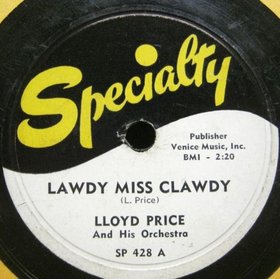
"Lawdy Miss Clawdy" is a song by New Orleans singer-songwriter Lloyd Price that "grandly introduced The New Orleans Sound". It was first recorded by Price in 1952 with Fats Domino and Dave Bartholomew during his first session for Art Rupe and Specialty Records. The song became one of the biggest selling R&B records of 1952 and crossed over to other audiences. "Lawdy Miss Clawdy" inspired many songs and has been recorded by a variety of artists.

Hums of the Lovin' Spoonful is the third studio album by the American folk rock band the Lovin' Spoonful. It was released in November 1966 by Kama Sutra Records. It peaked at No. 14 on the Billboard Pop Albums chart.
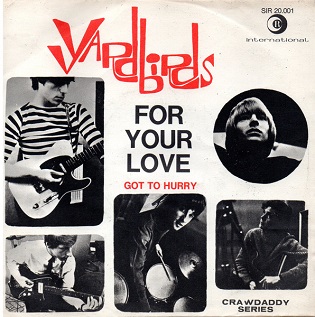
"For Your Love" is a rock song written by Graham Gouldman and recorded by English group the Yardbirds. Released in March 1965, it was their first top ten hit in both the UK and the US. The song was a departure from the group's blues roots in favour of a commercial pop rock sound. Guitarist Eric Clapton disapproved of the change and it influenced him to leave the group.
William Gussak was an American jazz and recording session drummer, best known for being the drummer on the classic 12 April 1954 recording of "Rock Around The Clock" by Bill Haley and His Comets. Some sources incorrectly spell his name as Guesak.
Stephen C. "Steve" Propes is a Long Beach, California record collector, disc jockey, and writer.
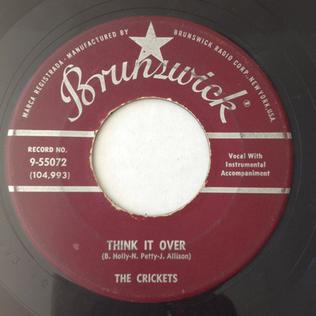
"Think It Over" is a rock-and-roll song written by Buddy Holly, Jerry Allison, and Norman Petty in 1958, originally recorded by the Crickets. Vi Petty, Norman Petty's wife, played piano on this recording.
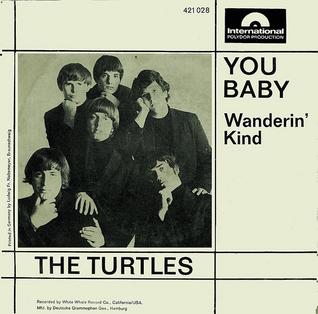
"You Baby" is a song written by P.F. Sloan and Steve Barri and was originally recorded by the Vogues in 1965, though their version was not released until 1996.










